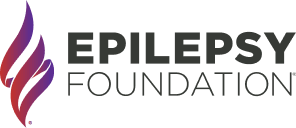Bone Health
"People with epilepsy are at higher risk than other people for developing osteoporosis and fractures."
Gender Differences in Bone Health with Aging
Bone health is an important consideration for both men and women – particularly people with epilepsy – but we are highlighting it here because women have a higher risk of developing osteoporosis (and therefore broken bones) than men. This is thought to be due to a baseline difference in bone structure: women have lighter, thinner bones than men to start with. The risk of developing osteoporosis also increases significantly following menopause due to the decline in estrogen.
National Osteoporosis Foundation Facts
- Of the estimated 10 million Americans with osteoporosis, about 8 million or every 8 out our 10 are women.
- Approximately 1 in 2 women over age 50 will break a bone because of osteoporosis.
- A woman's risk of breaking a hip is equal to her combined risk of breast, uterine, and ovarian cancer.
Impact of Antiseizure Medication
People with epilepsy are at higher risk than other people for developing osteoporosis and fractures. Many studies have shown an association between antiseizure medications and osteoporosis, particularly with older medications such as phenytoin (Dilantin), carbamazepine (Tegretol, Carbatrol), primidone (Mysoline), and valproic acid (Depakote).
The reasons for this are not entirely clear, but may include increased turnover of vitamin D and impaired absorption of calcium. Newer antiseizure medications have not been as extensively studied, but we also know that people on multiple antiseizure medications are at higher risk for bone loss.
What can I do to decrease my risk of fractures?
People with epilepsy are at higher risk than other people for developing osteoporosis and fractures. Many studies have shown an association between antiseizure medications and osteoporosis, particularly with older medications such as phenytoin (Dilantin), carbamazepine (Tegretol, Carbatrol), primidone (Mysoline), and valproic acid (Depakote).
The reasons for this are not entirely clear, but may include increased turnover of vitamin D and impaired absorption of calcium. Newer antiseizure medications have not been as extensively studied, but we also know that people on multiple antiseizure medications are at higher risk for bone loss.
Importance of Exercise
For best bone protection, engage in “weight bearing” exercises: those that make you work against gravity while remaining upright. You may choose low-impact or high-impact weight-bearing exercises depending on your overall health.
- High impact exercises include jogging/running, playing tennis, hiking, stair climbing, dancing, and high-impact aerobics.
- Low impact exercises include brisk walking, elliptical training machines, stair-stepping machines, and low-impact aerobics.
Eat a Well-balanced Diet with Enough Calcium & Vitamin D
- Calcium
- Women under 50 need 1000mg calcium daily
- Women age 50 and older should get at least 1200mg calcium daily
- Foods high in calcium include dairy products and green vegetables
- Vitamin D (needed for calcium absorption!)
- Women under 50 need 400 to 800 international units (IU) daily
- Women over 50 need 800 to 1000 IU daily
- If your doctor finds that you are deficient in vitamin D, you may need to take more than these amounts for a while.
- Foods high in vitamin D include fatty fish (i.e., salmon and tuna) and fortified foods like milk, soymilk, and cereals.
- Supplementation is often necessary to reach optimum levels of vitamin D for good bone health.
- Avoid Smoking
- Limit Alcohol Consumption
What should I discuss with my doctor?
Women with epilepsy should be screened for vitamin D deficiency and bone loss. Be sure to ask your medical care provider about your vitamin D levels, recommendations regarding supplements, and your need for bone density scanning.
Resources
Epilepsy Centers
Epilepsy centers provide you with a team of specialists to help you diagnose your epilepsy and explore treatment options.
Epilepsy Medication
Find in-depth information on anti-seizure medications so you know what to ask your doctor.
Epilepsy and Seizures 24/7 Helpline
Call our Epilepsy and Seizures 24/7 Helpline and talk with an epilepsy information specialist or submit a question online.
Tools & Resources
Get information, tips, and more to help you manage your epilepsy.


